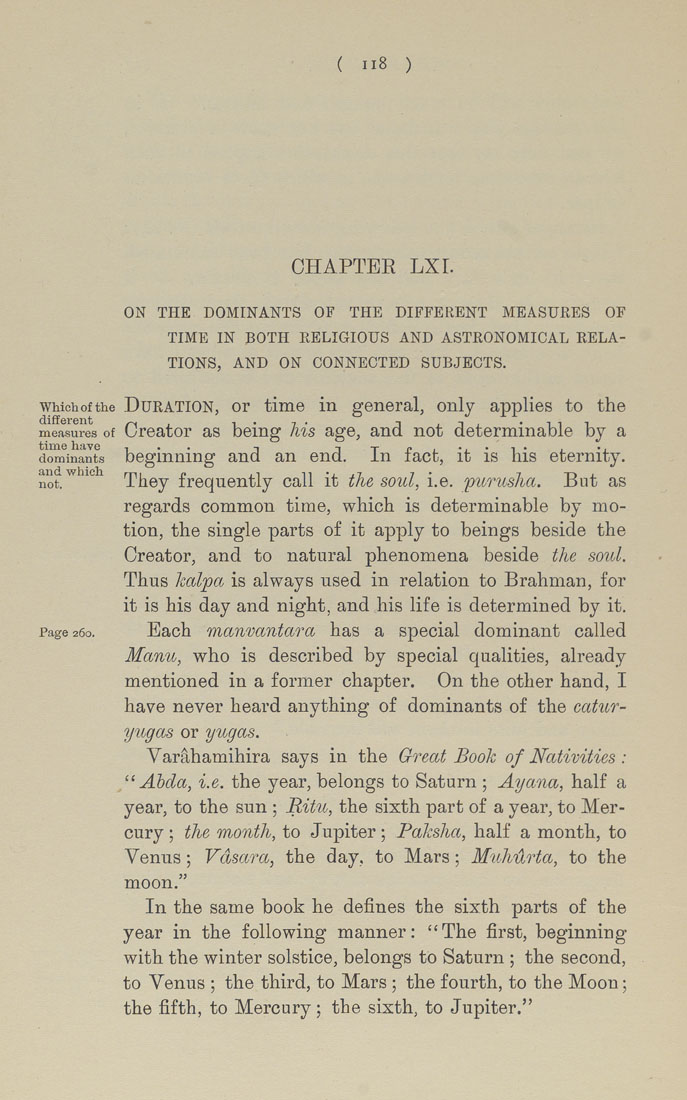( ii8 )
CHAPTER LXI.
ON THE DOMINANTS OF THE DIFFERENT MEASURES OF
TIME IN BOTH RELIGIOUS AND ASTRONOMICAL RELA¬
TIONS, AND ON CONNECTED SUBJECTS.
whichofthe DURATION, or time in general, only applies to the
measures of Creator as being his age, and not determinable by a
dominants beginning and an end. In fact, it is his eternity,
not.^ ic ipi^gy frequently call it the soul, i.e. yurusha. But as
regards common time, which is determinable by mo¬
tion, the single parts of it apply to beings beside the
Creator, and to natural phenomena beside the soul.
Thus kalpa is always used in relation to Brahman, for
it is his day and night, and his life is determined by it.
Page 260. Each manvantara has a special dominant called
Mctnu, who is described by special qualities, already
mentioned in a former chapter. On the other hand, I
have never heard anything of dominants of the ccttitr-
yugas or yugas.
Varahamihira says in the Great Book of Ncttivities :
/' Abda, i.e. the year, belongs to Saturn ; Ayana, half a
year, to the sun ; Ritu, the sixth part of a year, to Mer¬
cury ; the month, to Jupiter; Paksha, half a month, to
Venus ; Vdsarct, the day, to Mars ; MuhHrtct, to the
moon."
In the same book he defines the sixth parts of the
year in the following manner: "The first, beginning
with the winter solstice, belongs to Saturn ; the second,
to Venus ; the third, to Mars ; the fourth, to the Moon;
the fifth, to Mercury; the sixth, to Jupiter."
|








